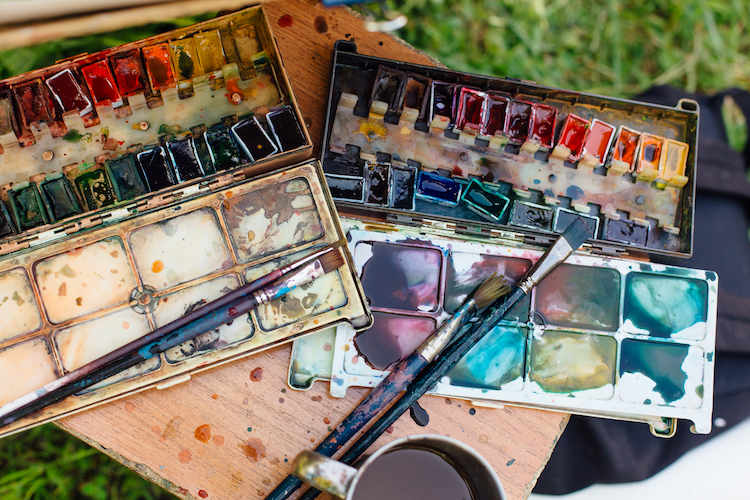👉😎👉
It's beautiful too!!
Watercolour(or 'Watercolor') paint consists of four principal ingredients: a pigment; gum arabic as a binder to hold the pigment in suspension; additives like glycerin, ox gall, honey, and preservatives to alter the viscosity, hiding, durability or color of the pigment and vehicle mixture; and evaporating water, as a solvent used to thin or dilute the paint for application.

Image source: mymodernmet
The traditional and most common support—material to which the paint is applied—for watercolour paintings is paper. Other supports include papyrus, bark papers, plastics, vellum, leather, fabric, wood and canvas. Watercolour paper is often made entirely or partially with cotton. This gives the surface the appropriate texture and minimizes distortion when wet. Watercolours are usually translucent, and appear luminous because the pigments are laid down in a pure form with few fillers obscuring the pigment colors. Watercolours can also be made opaque by adding Chinese white.
Click here if you want to learn more